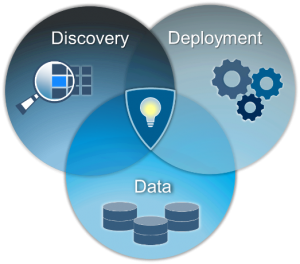The automotive industry will face a huge challenge for several years. With the Paris Agreement made during the United Nations conference on climate change last year, world leaders agreed to hold the increase in average temperature to well below 2°C by placing restrictions on carbon emissions.
How can automakers design a new engine using less fossil energy, reducing carbon emission and yet still offering the same level of performance, autonomy and practicality as the petrol engine?
 A few years ago, the immediate answer from automakers was to shift to electric vehicles with no carbon emissions. However, the performance of electric cars hasn’t yet been equal, and to date the market promise hasn’t yet been fulfilled – relatively few electric cars have been sold.
A few years ago, the immediate answer from automakers was to shift to electric vehicles with no carbon emissions. However, the performance of electric cars hasn’t yet been equal, and to date the market promise hasn’t yet been fulfilled – relatively few electric cars have been sold.
In the world of analytics software, we may have a similar situation. The digitization of business in a context of sluggish growth along with the rise of mobile activity, and the Internet of things, to name a few, will increase the demand for scalable, effective and low cost analytics.
To cope with this, many companies have turned to open source technology, like Hadoop, R and Python to store and analyze data for improving business activity. The ultimate goal of this strategy was to further reduce costs using commodity hardware and software at no charge, building a platform to test and innovate with new data and new modeling techniques.
Even if the cost and capabilities are indeed meeting the need for analytics experimentation, ultimately production deployment of these technologies has its own, often unexpected, costs. Deploying open source software at an industrial or enterprise scale can be challenging. For example, a bank in France has recently halted its open source analytics deployment after three years of development because of the delay of delivery and the large change management impacting business users. But what if there was a way to combine the benefits of open source with the strengths of enterprise software?
Adapting to market demands
The automotive industry is continuously adapting to market demands. Many car makers are now offering a hybrid engine that uses gasoline, electricity or a combination of the two. This hybrid approach brings the advantages of both worlds to meet various use cases.
Likewise, the analytics software industry is reacting quickly with a hybrid approach that brings together commercial software with open source software. With recent announcements, SAS has extended its role in embracing open source, providing a hybrid approach for data and analytics.
SAS Software embraces and extends analytics open source software in each phase of the analytics lifecycle, including:
 Data Preparation: SAS extends the Open Source Apache Hadoop and commercial Hadoop releases like MapR, Hortonworks and Cloudera through native data preparation and data quality capabilities for business users with SAS® Data Loader for Hadoop as well as real time data acquisition with SAS® Event Stream Processing.
Data Preparation: SAS extends the Open Source Apache Hadoop and commercial Hadoop releases like MapR, Hortonworks and Cloudera through native data preparation and data quality capabilities for business users with SAS® Data Loader for Hadoop as well as real time data acquisition with SAS® Event Stream Processing.- Discovery: SAS integrates the best of open source models. The Base SAS Java Object integrates R in traditional SAS code. SAS can integrate R code into custom SAS/IML® An R model can be compared to others with SAS® Enterprise Miner and monitored with SAS® Model Manager. Python, Lua and Java development can leverage the power of SAS’ newest cloud-ready analytics architecture SAS® Viya™.
- Deployment: SAS can automate the deployment of predictive R models. With SAS Enterprise Miner and SAS® Scoring Accelerators, PMML score code from R models can be translated into SAS score code for automation in the relational databases and Hadoop clusters. SAS Viya can provide REST APIs for data scientists to embed more scalable analytics into their ongoing projects.
Like the hybrid engine for cars, SAS offers a hybrid framework to govern the entire analytic lifecycle combining open source software and SAS software, providing assurances and industrial strength capabilities to organizations putting analytics into action.
Download a free e-book: Out in the open with open analytics